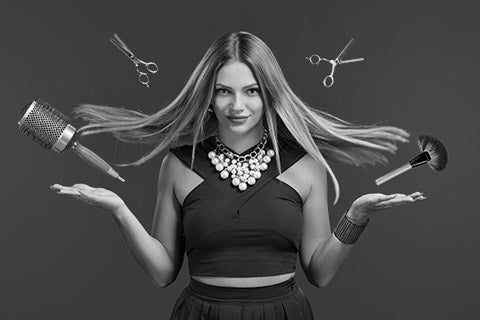Understanding Common Hair Problems
Posted on January 25 2024
Hair is not only a defining aspect of our appearance but also an indicator of our overall health. However, many of us face common hair problems that can affect our confidence and well-being.
Dandruff: Unraveling the Flakes
Dandruff is a common scalp condition characterized by white flakes and itching. Contrary to popular belief, dandruff isn't solely caused by poor hygiene but rather by a combination of factors including:
- Dry Scalp: Dry skin can lead to flaking and itching, exacerbating dandruff symptoms.
- Malassezia: A naturally occurring fungus on the scalp, Malassezia, can overgrow and cause irritation, leading to dandruff.
- Sensitivity to Hair Products: Certain hair products can irritate the scalp, triggering dandruff symptoms.
To combat dandruff, consider using anti-dandruff shampoos containing active ingredients like zinc pyrithione, ketoconazole, or selenium sulfide. Additionally, maintaining a healthy scalp through regular washing and moisturizing can help alleviate symptoms.
Split Ends: The Bane of Healthy Hair
Split ends occur when the protective outer layer of the hair shaft, known as the cuticle, becomes damaged or frayed. Causes of split ends include:
- Overstyling: Excessive use of heat styling tools, chemical treatments, and harsh brushing can weaken the hair cuticle, leading to split ends.
- Environmental Factors: Exposure to sun, wind, and pollution can strip the hair of its natural oils, leaving it vulnerable to damage.
- Poor Hair Care Practices: Using low-quality hair products and infrequent trims can contribute to the development of split ends.
While there is no permanent solution for split ends, regular trims and adopting a gentle hair care routine can help prevent further damage. Additionally, using nourishing hair masks and serums can temporarily improve the appearance of split ends, promoting healthier-looking hair.
Hair Loss: Understanding the Root Cause
Hair loss, or alopecia, can be distressing and may result from various factors, including:
- Genetics: Family history plays a significant role in determining susceptibility to hair loss conditions like male or female pattern baldness.
- Hormonal Changes: Hormonal fluctuations due to pregnancy, menopause, or thyroid imbalances can contribute to hair loss.
- Stress: Physical or emotional stress can disrupt the hair growth cycle, leading to increased shedding and hair loss.
Seeking professional advice from a dermatologist or trichologist is essential for diagnosing the underlying cause of hair loss. Treatment options may include topical medications, oral supplements, or lifestyle modifications to address the root cause of the issue.
Understanding common hair problems is the first step towards maintaining healthy, vibrant locks. By identifying the causes and symptoms of conditions like dandruff, split ends, and hair loss, you can take proactive steps to nurture your hair and scalp. Remember, consistency is key when it comes to hair care, so prioritize gentle practices and nourishing treatments to promote optimal hair health.
Take charge of your hair journey today, and embrace the beauty of healthy, resilient locks!

